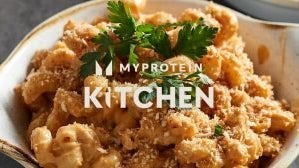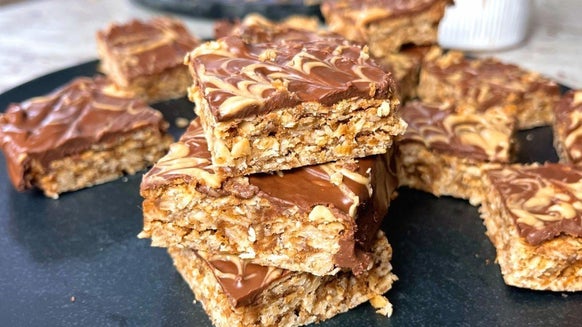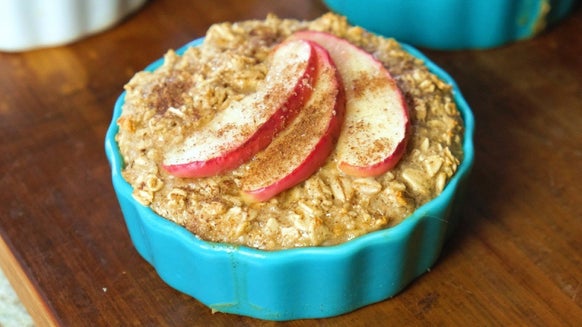11 Benefits of Chia Seeds for Your Health

Chia seeds have gained popularity in the last few years because they’re a nutritional powerhouse. You might add them to anything from smoothies to salads for a protein boost, healthy fats, and fibre. Chia seeds are rich in even more vitamins and minerals that can provide a variety of health benefits.1 Read on to see why you should be adding a sprinkling of chia to your diet.
What are chia seeds?
Chia seeds are small, black seeds that become gelatinous and sticky when soaked in water. Their popularity has skyrocketed after being declared a “functional food” — one of those foods that shows health benefits.2
Chia seeds come from the plant with the scientific name Salvia hispanica L, and are grown around the world, but native to Mexico and South America.1 Since the 16th century, chia seeds have been consumed to increase strength, endurance and energy.1 Now we know that many of the benefits of chia seeds come from their high nutritional content. Chia seeds range from white to brown and black and absorb water to form a gel-like substance (cooks can use chia seeds to replace eggs in recipes as an emulsifier and thickener).

What are the nutritional benefits of chia seeds?
1. Chia Seeds are High in Protein
Protein is one of the first nutrients that comes to mind when you think about any type of nut or seed — and chia seeds are no exception. In fact, chia seeds are considered an unprocessed wholegrain, containing all components of the grain. They’re a great plant-based source of protein, at 18.9% protein composition, or 5g per ounce.1 Additionally, chia seeds contain 9 essential amino acids (protein building blocks) — ones we must get from food because our bodies can’t make them on their own. Protein is an important nutrient for muscle growth and recovery and has also been shown to aid in weight loss, fat loss, and weight maintenance.2 Protein slows digestion and keeps food in our stomachs longer, which makes us feel more satisfied and less likely to overeat.
Although rich in protein, chia seeds are often used as a healthy grain source in those who have coeliac disease or follow a gluten-free diet. In this respect, chia greatly overpowers gluten free grain replacers like oats, corn, and rice, which are all lower in protein.2
2. They are Rich in Fibre
There are two types of carbohydrates — the type that you digest for energy, and the type that isn’t digested and doesn’t contribute any calories to our diet (fibre). Chia seeds contain about 35g of fibre per 100g, making them extremely rich in dietary fibre — 5x higher than quinoa or corn.1 Because fibre isn’t digestible, it makes us feel fuller and can help with weight loss.2 Due to their ability to absorb water and expand, chia seeds take up even more room in the stomach. Fibre also helps keep bowel movements regular.2
Chia seeds are so high in fibre that adding just a small amount to your diet can help you get to the recommended 25-35g of daily requirement.
3. Chia Seeds contain Heart-healthy Omega 3 Fatty Acids
Chia seeds are so high in heart-healthy omega-3 fatty acids that they’re often processed into chia seed oil. Omega-3 fatty acids are the specific type of unsaturated fat that have been shown to improve heart health and decrease inflammation.2 Chia seeds contain three particular fatty acids: alpha-linolenic acid (ALA), eicosapentaenoic acid (EPA), and docosahexaenoic acid (DHA), but are highest in ALA.1 DHA and EPA are the fatty acids with the greatest association to cardiovascular health.2
4. They Have a High Calcium Content
Chia seeds are the perfect example of a non-dairy source of calcium. Gram for gram, chia seeds actually contain more calcium than a glass of milk.2 Calcium, magnesium, and phosphorus are all crucial for heart, tooth, and bone health and can be difficult nutrients to get enough of for those with lactose intolerance or milk allergies. Adding chia seeds to oatmeal, smoothies, or cereal can help boost calcium intake in breakfast meals without dairy products.
5. Chia Seeds Contain More Magnesium than Milk
Magnesium is another important mineral that chia seeds contain more of than milk (or many other food sources).2 Magnesium plays a crucial role in the transmission of signals through the heart and the rest of the body. It’s also important for the health of your muscles, including the heart muscle. 100g of chia seeds contain 340mg of magnesium, and the recommended daily intake is between 300-400mg.2

6. They Contain Phosphorus
Similar to magnesium and calcium, phosphorus is a mineral that’s found in every cell in your body and is crucial to good health. It’s a component of ATP, our cell’s energy storage molecule.4 It’s crucial for the metabolism of carbohydrates and fats, and works alongside calcium to keep bones and teeth strong and healthy.4 Our kidneys help to regulate phosphorus levels in the blood, and too much phosphorus (and calcium) can be dangerous for those with kidney disease.
7. Chia Seeds Contain Potassium
Potassium is an essential nutrient that’s present in a variety of foods, with chia seeds being a high source.2 It’s also found in dairy products and many other sources, as potassium is crucial for helping maintain fluid balance in our bodies and in electrical exchanges with sodium ions to send messages through the body. Keeping a regular intake of potassium is important for health, and another benefit of regular consumption of chia seeds.
8. Chia Seeds are a Source of Zinc
Zinc is a trace element that we might not think too much about, but it’s actually responsible for essential functions in the body and helps to activate hundreds of important enzymes.5 In the big picture, zinc is essential for growth, especially in children and pregnant women.5 Zinc is also integral for a healthy immune system, and is often supplemented to help speed wound healing and even help to shorten the duration and intensity of the common cold.5
9. They’re a Great Plant-Based Source of Iron
Iron is a crucial nutrient that is associated with haemoglobin, which brings oxygen from the lungs to the tissues. Without enough iron, you can suffer from iron-deficiency anaemia. Often you can get iron in your diet from red meat and other animal products, which can make it challenging for vegetarians to get adequate iron. Chia seeds are an excellent example of a good plant-based source of iron — even higher than liver, which is traditionally thought of the best way to increase iron intake. However, chia seeds also contain phytic acid, which may decrease the absorption of the total iron available.1
10. They're a Convenient Source of Copper
Copper is a nutrient that works alongside iron to boost oxygen delivery to your cells. Although you don’t need a lot of copper in your diet, without enough, the iron we consume isn’t as effective. Chia seeds are a convenient way to get both copper and iron in one food source.
11. Chia Seeds are Rich in Antioxidants
Antioxidants are powerful compounds that can prevent or slow damage to our cells. The less oxidative damage to our cells, the less likely we are to develop chronic diseases. While the term “antioxidants” refers to a group of different substances, chia seeds are rich in a variety. Combined with the health benefits of fibre, healthy fats, and other cardio-protective substances, chia seeds are a food you can feel really good about including in your diet regularly.
Be creative and try chia seeds in the following ways:
- To thicken oatmeal, smoothies, or soups, sprinkle in a few teaspoons of chia and let sit for a few minutes or overnight.
- To replace an egg in a recipe, add 1 tablespoon of chia seeds to 3 tablespoons of water and let sit until it becomes gel-like – then add to your recipe.
- To add texture to fresh fruit or cold cereal, sprinkle raw chia overtop and enjoy the crunch!
- Mix equal parts of chia seeds with non-dairy milk and let sit overnight for a chia “pudding”. Add some flavour with cocoa powder or protein powder and top with fresh fruit.
Take home message
As you can see, chia seeds have a long list of benefits — and this is only 11 of them. While some nutrients are in higher concentration than others, even a small sprinkle of chia seeds added to your meals can be helpful. Chia seeds are considered to be a nutrient-dense food, meaning for the small amount of calories they add to your diet, you get a lot of nutritional benefit from them.

Claire is a Registered Dietitian through the Academy of Nutrition and Dietetics and a board-certified Health and Wellness Coach through the International Consortium for Health and Wellness Coaching. She has a Bachelor of Science in Biology and a Master’s degree in Clinical Dietetics and Nutrition from the University of Pittsburgh.
Talking and writing about food and fitness is at the heart of Claire’s ethos as she loves to use her experience to help others meet their health and wellness goals.
Claire is also a certified indoor cycling instructor and loves the mental and physical boost she gets from regular runs and yoga classes. When she’s not keeping fit herself, she’s cheering on her hometown’s sports teams in Pittsburgh, or cooking for her family in the kitchen.
Find out more about Claire’s experience here.



